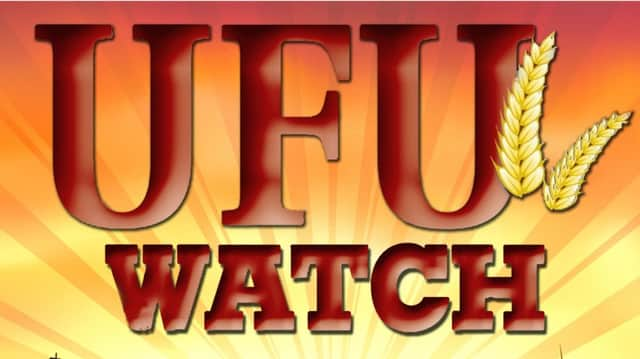Hill Farming Policy update


Regardless of the opportunities there could be, the reality is profitability on beef and sheep farms is marginal at best. We all want to see more fairness in the supply chain and trade deals which protect these vulnerable sectors but with no guarantees this will happen we need to plan ahead and look at what support mechanisms beef and sheep farms will need post Brexit.
Up to now we have become very familiar with the Common Agriculture Policy. It has been there for over 50 years and while we mightn’t always have agreed with it, it has offered long term stability for most farm businesses. The security of the CAP has also meant that there has been less pressure to justify tax payer’s money going to farmers. This is all going to change once the UK leaves the EU so it is really important that the UFU is active in identifying the needs of the local farming industry and present these to government.
Advertisement
Hide AdAdvertisement
Hide Ad‘Delivering public money for public good’ is a term which has become more familiar in recent times and it is a term we will have to get used too. The most basic description of what this means is that ‘public goods’ are goods which are not tradeable on a market. There are lots of different opinions on what public goods are and the UFU Hill Farming Committee has narrowed this down to food security, animal health and welfare and conservation of the environment. Now that the committee has established these principles, the next step has been to take a more holistic approach to justify why the sector needs financial support to help provide it with a sustainable future.
Farming in hill areas presents many challenges but equally it is one of the most unique food production systems in Northern Ireland. There are 10,000 farms in Northern Ireland producing food to high animal welfare standards and delivering environmental stewardship in severely disadvantaged areas (44% of the NI agricultural land base). These farms are the home of almost 50% of the suckler cow population and 60% of our ewes, all of which produce a significant quantity of livestock that are used for further breeding or finishing on lowland farms. Hill farms are therefore of huge strategic importance for the Northern Ireland red meat industry, worth over £1.2 billion to the local economy and also the delivery of high quality local food to consumers.
Aside of the contribution hill farming makes to food security and the economy, it is also important to acknowledge the contribution to environmental stewardship and our most rural communities. We have a beautiful rural landscape in Northern Ireland and much of this has been shaped by carefully managed livestock and the conservation skills of our farmers. This helps project a clean, green image for our red meat industry onto the international stage and makes Northern Ireland a more attractive place for tourists to visit.
The skills of hill farmers who make this all possible cannot be underestimated. They heft the livestock onto the hills, manage the habitats, control the predators and repair the dry stone walls and fences. These are all unique skills which if lost will be very difficult to re-introduce and our rural communities would be worse off for it.
Advertisement
Hide AdAdvertisement
Hide AdIn recent months the UFU Hill Farming Committee has spent a lot of time looking at options for how support can be delivered to farmers in the future. This has included examining the WTO compliant schemes which Norway and Switzerland are delivering outside the confines of the European Union. The committee has stressed that if new farming schemes are to have a meaningful impact it will be crucial that the amount of government funding which is made available is at least what is currently available from the CAP. Schemes must be simple to deliver and target only those who are actively farming. Compliance models must also be simplified and the rules reformed to provide a much fairer and proportionate system where the authorities use common sense to find on farm solutions rather than financial penalty.
In terms of delivery the committee want to see an area based payment which supports food security, basic environmental conditions and reduces volatility.
For grassland farms, minimum stocking rates based on eligible livestock units will be essential to determine farming activity. This baseline payment should then be supported by a series of modular schemes which ensure that active and productive farmers have the opportunity to receive at least what they currently do in EU funding, supporting the viability of their businesses:
A targeted beef and sheep sustainability scheme – supporting the vulnerable livestock sectors.
Advertisement
Hide AdAdvertisement
Hide AdAn animal health and welfare scheme – supporting best practise.
An extensification scheme – to reflect natural disadvantage in hill areas.
A cultural and landscape grazing scheme – this should be livestock based and help to prevent land abandonment and wildfires; preserve the carbon sink; preserve the landscape and natural heritage of rural areas.
Over the coming months the committee will continue to develop their position and look at new ideas.
Should any member wish to offer their own views on these proposals, please contact myself at UFUHQ or your local UFU hill farming representative through the group office.